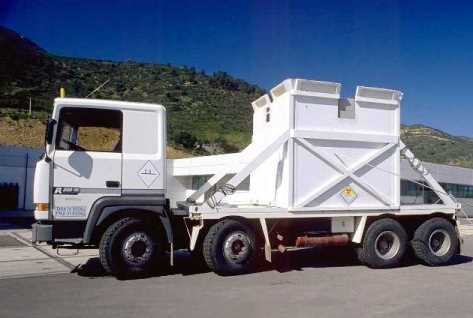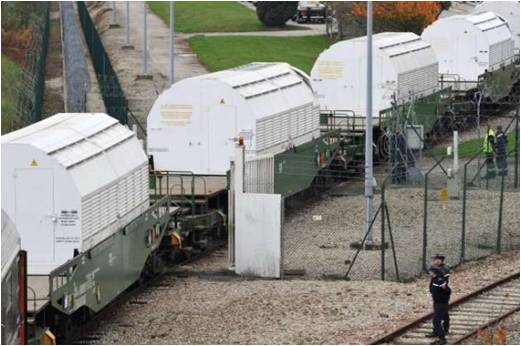Contenido principal
Transport of nuclear material
Transporte de materiales nucleares

The “nuclear materials” concept falls within the more generic “radioactive materials.” These are therefore radioactive materials which, as well as the radiation risks, have an additional risk: the capability of producing a nuclear chain reaction if they exceed a certain amount of material (critical mass).
In the nuclear materials transport field, these are called "fissionable substances," those that have the risk of producing a critical process during transport. They include, for example, enriched uranium oxide used to manufacture fuel assemblies for nuclear power plants or the fuel assemblies themselves, both before and after having been irradiated. There may also be other radioactive materials that meet the fissionable substance criteria and that are transported in some phase of the nuclear fuel cycle, such as enriched uranium hexafluoride.
The regulations that ap ply to fissionable substances are exactly the same as for the rest of radioactive materials, although additional requirements are defined for their packaging and transport operations, aimed at reducing the risk of criticality.
ply to fissionable substances are exactly the same as for the rest of radioactive materials, although additional requirements are defined for their packaging and transport operations, aimed at reducing the risk of criticality.
Fissionable substances are usually carried by road, rail and sea, the latter being used for long distances and for carrying large amounts of material.
For further details on the requirements applicable to all radioactive materials, please visit the section Radiation protection > Transport of radioactive material.

